The author worked with Mrs. Ho Thi Pieng, 83 years old, in Hamlet 3b, Khe Sanh town, who was a witness to the massacre of 94 people in Ta Rut commune in 1955 - Photo: MT
Remembering the early days of my career, I was a trainee reporter, holding an old tape recorder, riding a broken motorbike in the midday sun back to the base. At that time, journalism to me was something very glamorous, I got to travel a lot, meet many people and be called a journalist. But then, the more I pursued the profession, the more I understood that behind the press card were countless pressures, worries and sometimes even dangers.
My first product was an article about a poor mother in Tham Khe village, Hai Khe commune, Hai Lang district. My first impression was the palpable poverty of a remote coastal area on burning sand. The poor mother had only one unmarried son. One day he went fishing at sea and never returned. She lay huddled in a corner of a roofless tent with a thin, tattered blanket.
- Have you eaten yet? I asked.
A moment later she whispered: We've run out of rice for three days now, uncle!
I went to the old machine gun ammunition box she used to store rice. When I opened it, I was shocked to see only eight grains of rice mixed with rust. The bottom of the box was covered with scraping marks. She must have tried to cook another batch of rice, but there was nothing left to start a fire. She had been hungry for three days.
The village front cadre who accompanied me was confused as he explained. She had lived alone for many years, without any relatives. Neighbors occasionally helped with meals and bundles of vegetables, but in a land with many shortages, kindness could only last for a while. I took out my wallet and gave her all the money, so when I returned, my motorbike ran out of gas in the middle of the road and had to walk more than 5 km before using the Border Guard Station's phone to call my colleagues for help.
Returning to the editorial office, I wrote the article with a heavy feeling. The article was printed on the front page, with a picture of her lying huddled under a torn roof, looking through the clouds and sky. Just two days later, dozens of phone calls came in, from people in Hue, Da Nang, all the way to Hanoi and Saigon. A charity group brought rice, blankets and even cash to help. She cried, I also cried. That was the first time I saw my pen bring joy to a person. And I also learned something. Journalism when touching lives, sometimes painful, choking and telling the story with all honesty, respect, without embellishment, without sensationalism, without avoidance will bring real effectiveness.
The article about the mother in Tham Khe was the starting point of my 23-year journey. Later, I went through many lands, met countless lives, but the feeling of standing in front of that empty ammunition box containing 8 grains of rice is something I will never forget.
But journalism is not without its heartbreaking moments. There are articles that reflect negative opinions, even though they have been thoroughly verified, but still unintentionally become tools for profiteering calculations. I still remember clearly a seemingly clear case. When we received feedback from people about being oppressed in an auction of shrimp and fish ponds in a coastal commune, we immediately went to the locality to verify.
The story goes like this: the commune government organized a bidding for a nearly 2-hectare lagoon area for aquaculture. The bidding went smoothly until the results were announced, with the highest bidder winning the bid. However, shortly after, some people discovered that the unit's bid was missing a zero, making the actual price significantly lower.
According to the regulations, the wrongly recorded bid is invalid and the next unit with the next lower price will be considered the winning bidder. However, the controversial thing is that the difference between the two units is up to hundreds of millions of dong. The commune government, under the pressure of "the value of State assets being lost", announced to cancel the results and re-organize the bidding. From here began a series of complaints and denunciations between the original winning unit and the commune People's Committee.
We got involved, met with many stakeholders, carefully reviewed the legal documents and concluded that awarding the contract to the second-placed unit after the first unit was eliminated was completely in accordance with the regulations. Under pressure from many sides, including the voice of the press, the commune government was finally forced to acknowledge the result.
I thought the case was over. However, a year later, on a dry afternoon, three farmers came to my house with 2 kg of early-season shrimp. They introduced themselves as the ones who won the shrimp farm contract that year, and came to give me a little gift to thank the journalist for his help. But after a few conversations, I sensed something was wrong. After much questioning, they finally confessed that the whole auction was just a drama.
The two participating bidders actually colluded beforehand. One bid extremely high, deliberately writing a 0 to be eliminated, paving the way for the other bidder with a much lower price to win the bid “legally”. The scenario was so cleverly prepared that even the commune officials, when they discovered signs of irregularities, did not dare to do anything because of public pressure, including the press.
We, the writers, have been caught up in a carefully staged drama where the truth is turned into a tool for profiteering. A painful lesson, not only about the profession, but also about trust.
I remember very clearly the feeling of confusion when standing before them, the seemingly simple farmers, their hands still smelling of mud. Each of their words was like a knife cutting into the absolute trust in integrity that I had carried with me since I entered the profession. It turns out, goodwill can be taken advantage of. It turns out, trust can also become a place for selfish calculations.
The very next morning, I sat down to write the whole thing down, but this time not to publish it, just to express my feelings. Because I knew that if I continued to bring it to the public, I might unintentionally create a new spiral of controversy, hurt, and doubt. I had to learn to choose the right time to speak up, and the right way to tell the truth. Because the truth is not always received as desired. Sometimes it requires patience, preparation, and the courage to wait.
From that story, I changed the way I work. Every piece of information received from the people, no matter how emotional and detailed the reflection seems, is checked more than once. Not only by comparing it with the written or spoken words of the officials, but also by placing it in the broader context of relationships, of local history, of the hidden motives behind it.
Since then, we have become more cautious when siding with someone. It is not that the press has lost its support for the vulnerable, but rather to protect the right people who really need protecting. And sometimes it is also to protect the honor of journalism, which has been used as a shield by opportunists many times.
Someone asked. After that incident, were you afraid? I answered without hesitation. Yes. Afraid of being wrong. Afraid of being manipulated. But above all, afraid of hurting other honest people. And I learned a valuable lesson that. A journalist not only needs a sharp pen but also a cool head and a sober heart. The truth is not always the majority. And sometimes, what is right is not what pleases everyone.
Looking back, that incident was not only a failure of an article but also a failure of faith and conscience. But from that moment on, we walked more firmly, more responsibly and more humbly in our profession. No longer with the mindset of “exposing the truth at all costs”, but pursuing the truth with a spirit of fairness, sobriety and understanding enough to not be caught up in the calculations behind.
Since then, every time I pick up my pen to write about a negative story, I ask myself: Is this true?, always asking myself more. Who is behind this story? And are we being dragged into another game that we do not know?
In 23 years of working as a journalist, I have gone through all the ups and downs, from seemingly small joys that have a great influence, to heartbreaking disappointments that make me look back at myself. Sometimes the pen becomes a bridge of love, sometimes it becomes a double-edged sword if not held with courage and alertness.
However, I always believe in the noble mission of journalism, which is the journey to find the truth, not with the arrogance of someone holding the scales of justice, but with a heart that knows how to listen, knows how to doubt even one's own emotions so as not to accidentally turn oneself into a tool for someone else. Now, when my hair is gray, I still feel my heart tremble every time I come across a life story that needs to be told.
Because perhaps, the motivation that makes people continue to do journalism throughout their lives is not the halo, not the title, but the moment they see a person's life, an incident illuminated by the light of conscience.
Minh Tuan
Source: https://baoquangtri.vn/vui-buon-nghe-bao-chuyen-ke-sau-23-nam-cam-but-194443.htm


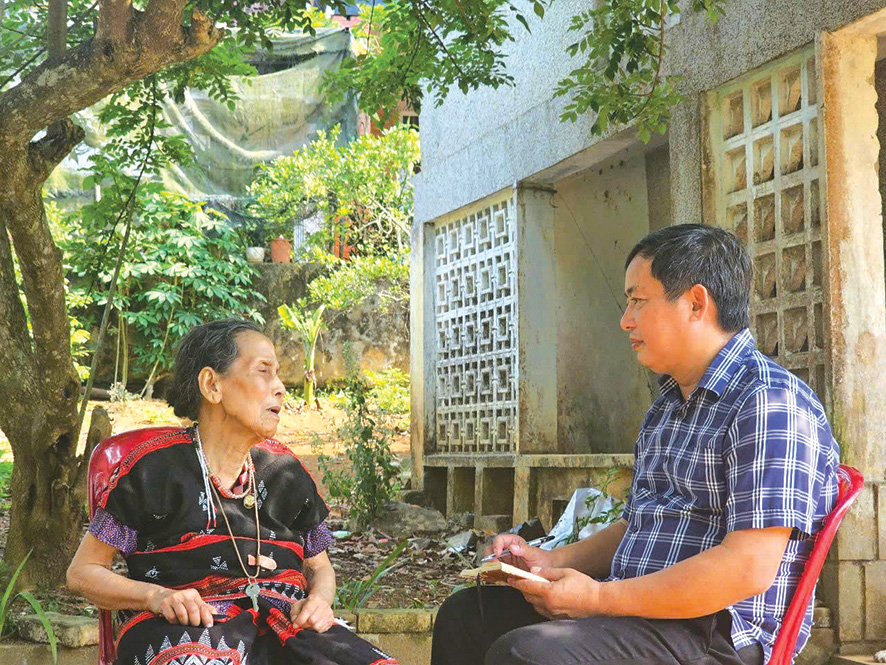



![[Photo] Hanoi morning of October 1: Prolonged flooding, people wade to work](https://vphoto.vietnam.vn/thumb/1200x675/vietnam/resource/IMAGE/2025/10/1/189be28938e3493fa26b2938efa2059e)
![[Photo] President of the Cuban National Assembly visits President Ho Chi Minh's Mausoleum](https://vphoto.vietnam.vn/thumb/1200x675/vietnam/resource/IMAGE/2025/10/1/39f1142310fc4dae9e3de4fcc9ac2ed0)
![[Photo] Keep your warehouse safe in all situations](https://vphoto.vietnam.vn/thumb/1200x675/vietnam/resource/IMAGE/2025/10/1/3eb4eceafe68497989865e7faa4e4d0e)
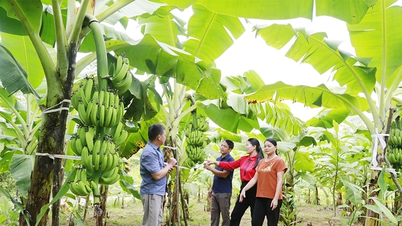

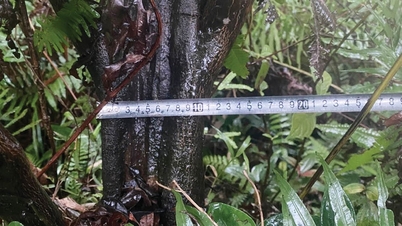


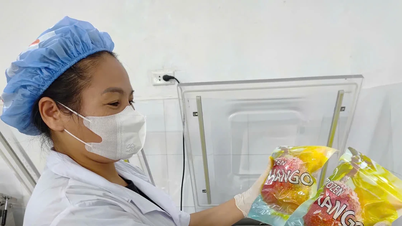
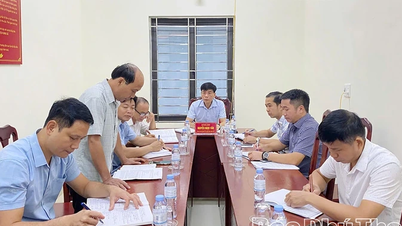
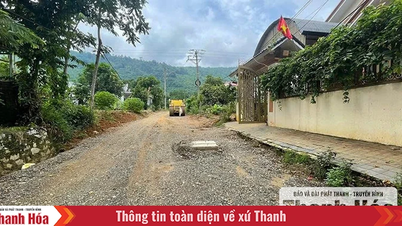







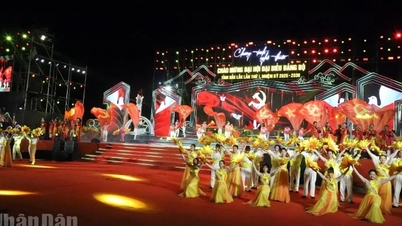



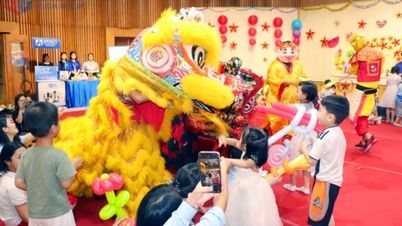





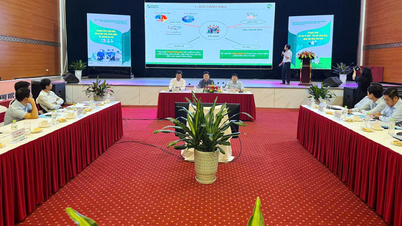


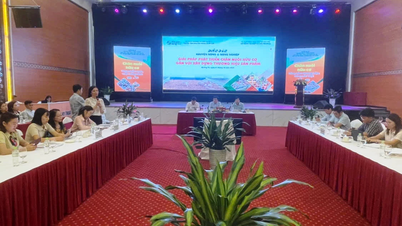
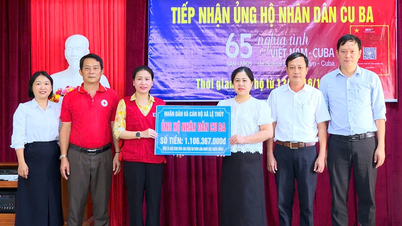
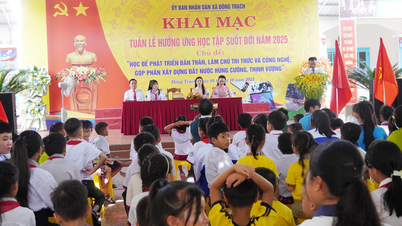




























































Comment (0)